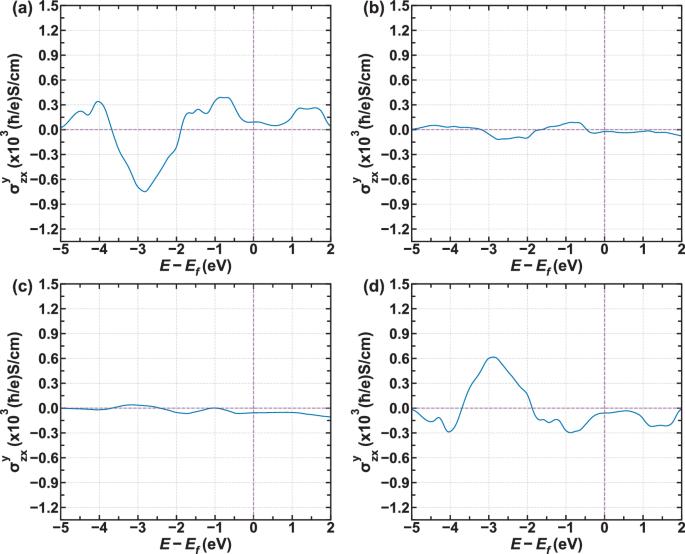Spin-Hall effect in topological materials: evaluating the proper spin current in systems with arbitrary degeneracies
引用次数: 0
Abstract
The spin-Hall effect underpins some of the most active topics in modern physics, including spin torques and the inverse spin-Hall effect, yet it lacks a proper theoretical description. This makes it difficult to differentiate the SHE from other mechanisms, as well as differentiate band structure and disorder contributions. Here, by exploiting recent analytical breakthroughs in the understanding of the intrinsic spin-Hall effect, we devise a density functional theory method for evaluating the conserved (proper) spin current in a generic system. Spin non-conservation makes the conventional spin current physically meaningless, while the conserved spin current has been challenging to evaluate since it involves the position operator between Bloch bands. The novel method we introduce here can handle band structures with arbitrary degeneracies and incorporates all matrix elements of the position operator, including the notoriously challenging diagonal elements, which are associated with Fermi surface, group velocity, and dipolar effects but often diverge if not treated correctly. We apply this method to the most important classes of spin-Hall materials: topological insulators, 2D quantum spin-Hall insulators, non-collinear antiferromagnets, and strongly spin-orbit coupled metals. We demonstrate that the torque dipole systematically suppresses contributions to the conventional spin current such that, the proper spin current is generally smaller in magnitude and often has a different sign. Remarkably, its energy-dependence is relatively flat and featureless, and its magnitude is comparable in all classes of materials studied. These findings will guide the experiment in characterizing charge-to-spin interconversion in spintronic and orbitronic devices. We also discuss briefly a potential generalization of the method to calculate extrinsic spin currents generated by disorder scattering.

拓扑材料中的自旋-霍尔效应:评估任意变性系统中的适当自旋电流
自旋-霍尔效应是现代物理学中一些最活跃课题的基础,包括自旋力矩和反自旋-霍尔效应,但它缺乏适当的理论描述。这使得我们很难区分自旋霍尔效应和其他机制,也很难区分带状结构和无序贡献。在此,我们利用最近在理解本征自旋-霍尔效应方面取得的分析突破,设计了一种密度泛函理论方法,用于评估通用系统中的守恒(适当)自旋电流。自旋不守恒使得传统的自旋电流在物理上失去意义,而守恒自旋电流由于涉及布洛赫带之间的位置算子,其评估一直具有挑战性。我们在此介绍的新方法可以处理具有任意退变性的带状结构,并包含位置算子的所有矩阵元素,包括臭名昭著的对角元素,这些元素与费米面、群速度和偶极效应有关,但如果处理不当,往往会发散。我们将这种方法应用于最重要的自旋霍尔材料类别:拓扑绝缘体、二维量子自旋霍尔绝缘体、非共轭反铁磁体和强自旋轨道耦合金属。我们证明,转矩偶极子系统性地抑制了对传统自旋电流的贡献,因此适当的自旋电流通常较小,而且经常具有不同的符号。值得注意的是,其能量依赖性相对平缓且无特征,其大小在所研究的各类材料中都相当。这些发现将指导自旋电子和轨道电子器件中的电荷-自旋相互转换实验。我们还简要讨论了计算无序散射产生的外在自旋电流的方法的潜在推广。
本文章由计算机程序翻译,如有差异,请以英文原文为准。
求助全文
约1分钟内获得全文
求助全文

 求助内容:
求助内容: 应助结果提醒方式:
应助结果提醒方式:


